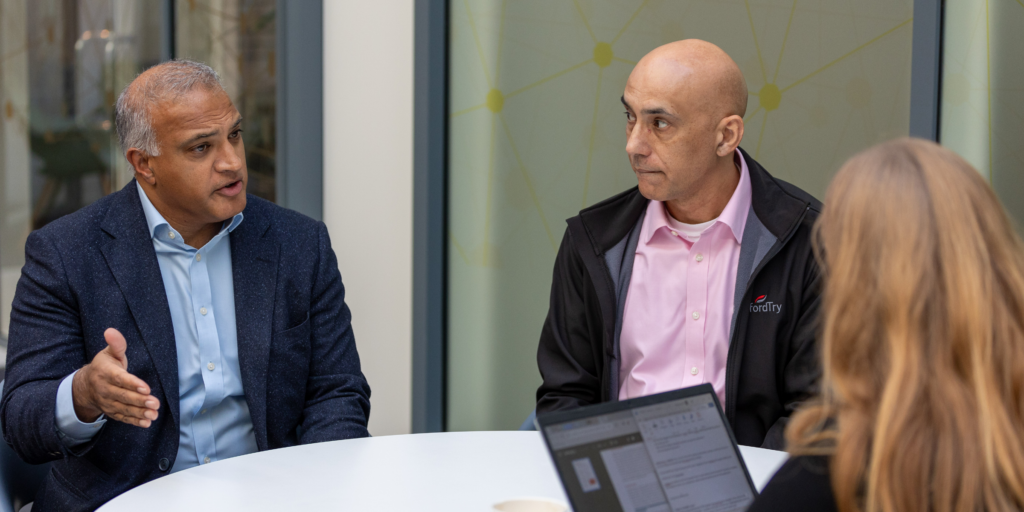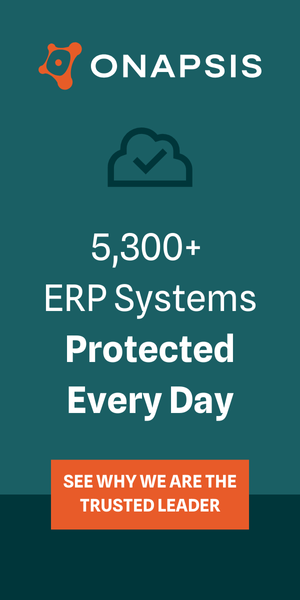Debra Lilley, vice president of customer success at Inoapps, discusses the very important role of user groups in the ERP industry.
I’ve long been a fan of user groups. I think it’s important that end users have a collective voice heard by their ERP vendors, and when I read on LinkedIn that the UK and Ireland SAP User Group (UKISUG) won Best UK Conference at the Global Conference Network’s Conference & Events Awards, it was a sign that there was a story for me to tell in ERP Today.
I first got involved in user groups 22 years ago when I was asked to stand as a volunteer for UK Oracle User Group (UKOUG) and join their board. I continued in various volunteer and board roles including president until 2018; currently I’m on the board of the global Oracle Development and Technology User Group (ODTUG).
The highlight of a user group year is the annual conference. This, like an awards event, is a chance to bring the community together, network and learn from each other, to inspire ideas to go back to your organization with to improve your ERP use. Also like many award bashes, these conferences are mainly funded by partners as exhibitors and sponsors. There is typically a charge for users to attend, either via membership fees or direct, but on their own that does not generate enough revenue to put on a three or four-day user conference. Often the conference also needs to make a surplus to fund the user group for the rest of the year. Financially, therefore, partners are crucial.
Bygone days
I love the independent user group model which means that they are not answerable to the vendor. But that comes with its own challenges: how do you fund the community and how do you make it valuable? In my early user group days, we had no social media, online content was mainly text, there were very few webcasts and partners needed these conferences to reach potential customers.
As such, user groups were the best place for the ecosystem to come together around great educational content from user organizations and experts in the ecosystem, and an exhibition where those partners could showcase their value to the user community. This was the main way those vendors could get their story out in the marketplace, and for the first few years all exhibition space was sold for the next conference before the existing conference was over.
A few years later there was a major shift in ERP as vendors increased acquisitions. This meant more users, more stakeholder groups and less partners as many became involved with multiple vendors. At the same time, technology brought digital disruption, not just to organizations, but also user groups. Now they were in competition with many other platforms for a partner’s marketing budget. Throw in a global economic climate that caused organizations to tighten their belts, halt education spend and not allow their people to attend in person events.
Thereafter, applications started to move towards cloud, which meant a business model change for many partners, and roles changing at end user organizations. All this added up to major challenges for user groups, who in general saw drops in numbers for their annual conferences. In turn that affected partner ROI on their spend, as partners began questioning if they were getting the value they needed.
These challenges are not limited to the UK. At the time of writing, I had just returned from the last of three user group conferences in the US, including KSCOPE, ODTUG’s annual conference. This conference had been incredibly successful despite the challenges of COVID which decimated events for at least two years. The numbers had grown since last year, but like all other groups have a longer trend of constricting membership.
UKISUG: bucking the trend?
To understand what led UKISUG to winning big at the Conference and Events Awards and if they were bucking this trend, I spoke to Craig Dale, CEO and asked him about his user group get-together. The make-up was very similar to the conferences I attend, with plenty of networking, educational sessions from both end users and experts in the field and social events, with a great party vibe to boot. His event is growing slowly and COVID hadn’t really affected that. Yes, they had had to cancel during the first year of the pandemic, and ran a mini-conference the year after, but the group has come back as strong as before, if not stronger. So, what is different about UKISUG, and what could others learn from Dale’s efforts?
As I talked with Craig, we discussed what they do between conferences alongside UKISUG’s special interest groups and how those communities support each other. They have online areas to ask each other questions away from the vendor, with online meetings or meetups where they could discuss things that were affecting everybody in their community. These are volunteer-led.
They also have educational sessions including those that are certified for continuing professional development (CPD) throughout the year. As such, the conference was more like a coming together of the community for a celebration of the year rather than the only thing that was happening. This means the UKISUG model is about putting the community first rather than the conference, and I wonder if some other user groups have lost their way and are now more conference organizations than actual communities.
As I reflected on this, I thought about the APEX community within ODTUG. At our recent conference they had a session where the community discussed the top-rated enhancement requests with Oracle Product Development. This level of discussion and feedback does not happen online, and the members felt they were part of the APEX platform’s future. The vendor also got back far more intelligence there than they would have done from a simple online request.
We also shouldn’t forget the vendor in all this. I also talked with Richard Pepper, current president of UKOUG for this article, and he felt that UKOUG is now much leaner and working harder to serve their membership with real support from Oracle UK. That support from the vendor is imperative. User groups are generally – and should be – independent, but need the vendor to recognize and listen to them.
Back to basics
So, what’s my takeaway for you? Let’s go back to the basics: ensure the communities are active, covering an area where they can make a difference, where they can talk to a listening vendor throughout the year.
Partners should get involved in those communities relevant to them. You may not be invited to every meetup or online meeting, but if you’ve got something to share then reach out and offer. You can provide webinars which may need to be paid for, but through them you will reach a community and not just the organizations you have worked with in the past. This way the conference will be a place to talk individually to those organizations, capitalize on your brand recognition and also your commitment to the community. In this way the value and opportunities will be there rather than it just being “here is an event in our calendar we need to be on the show floor for”. Both UKOUG and UKISUG have their 2023 annual events in November so there is still time to get involved.
This isn’t a very scientific article; unfortunately I only had enough time to speak to a couple of user group leaders and lean on my own experience. I would have liked to have spoken to a few other user groups that are covered by ERP Today and if those user groups would like to speak to me and continue the conversation then please do reach out on LinkedIn.





